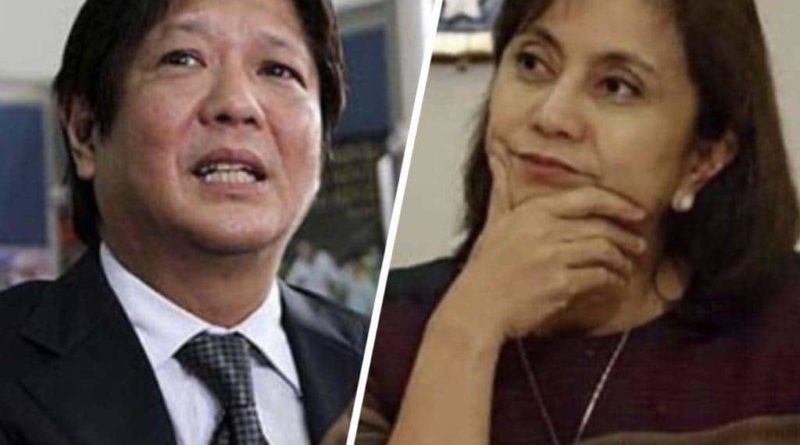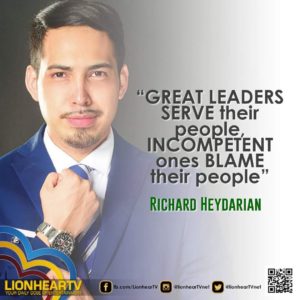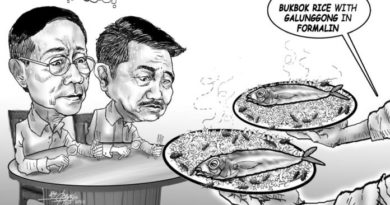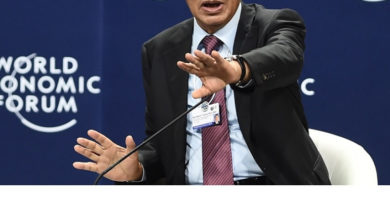OP ED | COLUMNIST: HORIZONS- Can Leni Robredo beat Marcos Jr.?
“The crisis consists precisely in the fact that the old is dying and the new cannot be born,” warned Italian philosopher Antonio Gramsci almost a century ago. With centrist parties collapsing and fascist elements gaining ground, Gramsci’s Italy confronted a dangerous “interregnum”: namely, a dizzying period of high political uncertainty and untold revolutionary opportunities for those who dared to seize the moment.
Outgoing President Duterte is a unique specimen. Under his watch, demagogic politics has become the norm, authoritarian fantasies a new fad, and flirtation with dictatorship an annual ritual. Despite his “macho” image as a decisive strongman, however, the outgoing populist has been more successful in discrediting the old liberal-reformist order than creating a functional and competent authoritarian alternative.
Despite his constant assault on liberal-reformist predecessors, however, Mr. Duterte has struggled to establish a high-performing authoritarian system. By his own admission, Mr. Duterte’s signature policy, the so-called “drug war,” has been a massive failure, creating a human rights catastrophe without netting any real “big fish.”
On the foreign policy front, Mr. Duterte kicked off his term by promising to upend our century-old alliance with Washington in favor of new strategic patrons in Beijing and Moscow. But he is stepping down from office with not a single geopolitical concession or big-ticket infrastructure investment from Eastern superpowers.
Meanwhile, the US and the Philippines just conducted their largest-ever bilateral military exercises during Mr. Duterte’s twilight months in office. And yet, the fate of the Philippine-US alliance, in general, and the Enhanced Defense Cooperation Agreement, in particular, is still in limbo.
The upshot of his half-baked authoritarianism and largely performative populism is a perilous interregnum in Philippine politics. Thus, whoever becomes the next Philippine president can either dramatically reverse the incumbent’s antics or, alternatively, finish the job that Mr. Duterte was simply either unwilling or too incompetent to accomplish.
And this is precisely why this year’s election is arguably the most important democratic exercise in modern Philippine history. The two frontrunners, namely former senator Ferdinand “Bongbong” Marcos Jr. and Vice President Leonor “Leni” Robredo, will be in an unprecedented position to radically alter the country’s political future should they win this year’s elections.
But the question is: Can Leni, a perennial underdog, once again upset the Marcosian steamroller? Dear reader, there are three important elements to keep in mind.
First of all, the Leni campaign has to move on two fronts simultaneously, namely exploiting the low-intensity yet steady fragmentation in the “UniTeam” coalition, as well as mitigating perennial divisions within the opposition camp.
The seemingly odd “RoSa” campaign, pairing Leni with presidential daughter Sara Duterte, is the clearest manifestation of fault lines within the so-called “Solid South” voting bloc in Mindanao, as well as the broader pro-administration coalition. Mindanao is clearly “solid” behind Sara, one of their own, but the same doesn’t apply to Marcos Jr., whose father’s dictatorial legacy in the southern island is, to put it mildly, checkered.
Meanwhile, a semblance of a “united opposition” is indispensable to overcome the still formidable Duterte-Marcos axis, notwithstanding internal divisions within the latter coalition. Of all alternative presidential candidates, Sen. Emmanuel “Manny” Pacquiao, who has double-digit support in his home island of Mindanao, will be key to the formation of a “team unity” for the opposition. Not only does he have great rapport with the vice president, the de facto leader of the opposition, but his base arguably overlaps more with Leni’s than Marcos Jr.’s.
Second, centrist candidate Francisco “Isko” Moreno Domagoso will also be crucial in determining the outcome of the race. As the top “second preference” candidate, he has the most room for improvement in the coming weeks. And since the bulk of his support base overlaps with Marcos Jr.’s, any Isko surge will automatically benefit Leni’s campaign.
To put it bluntly, Leni can’t beat Marcos Jr. on her own. And this brings us to the final factor, namely the momentum and power of her volunteer movement, which has been rightly targeting strategic demographics, namely undecided voters and bandwagoners, who aren’t entirely tethered to the current frontrunner. Should the Leni campaign continue to mobilize large-scale “grand rallies,” and maintain its grassroots-level mobilization, she might just pull off an electoral shock yet again.




 Ads by: Memento Maxima Digital Marketing
Ads by: Memento Maxima Digital Marketing






